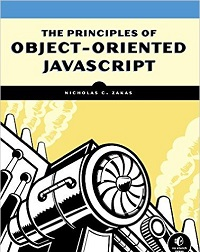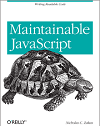Understanding how you provide value
As a geeky teenager, I watched in envy as all the pretty girls started dating the jocks, the rebels, and the mysteriously popular kids who didn’t seem to have any discernible talent. I, like most guys in my situation, would sit and watch and daydream about the day that those girls would want to date me.
By the time I got to college I was a bit obsessed with trying to hide my geeky side. I wanted to be the type of guy those girls wanted to date. I wanted to be good at picking up girls at bars, nevermind the fact that I didn’t drink nor did I have any desire to. I wanted to be exciting and dangerous, nevermind that I was afraid of my own shadow. I wanted to be a badass. As you can probably imagine, that plan didn’t go very well.
In dating, people always tell you to “be yourself” and then you’ll find someone. But myself was boring, I thought, in comparison to the guys who got all the girls. The problem with my perception was that I didn’t understand how I was providing value in a relationship. It took me some years, but then I finally figured it out: the way I provide value in a relationship is by using what I’m good at. I’m not dangerous, or exciting, or adventurous. I’m not a non-stop adrenaline rush that likes to push the edge. Girls who want that would never find value in me, and that’s okay.
My value in relationships is that I am trustworthy, I’m stable, I’m safe. I call when I say I will and show up when you need me. I remember birthdays and anniversaries, and I’ll take care of you when you’re sick. I listen, I understand, I help. I don’t run and hide when things go sideways. All of these things that I perceived as weaknesses when I was young turned out to be invaluable assets. This is how I provide value in relationships. It’s not the value everyone seeks, but it’s the value I’m best equipped to provide. And that’s what matters.
Oddly enough, I learned this lesson about love first, before realizing the same basic principle applies in other types of relationships. Understanding how you provide value is key to getting the most of our your relationships and enjoying what you do. It wasn’t until I joined Yahoo that I’d go through the exact same process with my career.
As the front-end lead for the Yahoo homepage, heading up a team of 20 front-end engineers located in three countries, I had become overwhelmed. There was so much work to do and I felt like I had to do it all. I was coding so much, and people were coming to me so frequently, that I was severely stressed. There was just too much going on, too much code to write, too many people’s questions to answer, just too much.
I mentioned this during a one-on-one with one of my mentors and he, as usual, had some fantastic advice. He told me that I’d transitioned into a new role and my true value to him and the team was no longer as a coder. I was confused, because when I interviewed he specifically said he needed me as a coder, and now he was telling me that this was not what I should be doing? My heart sank – I must not be good at coding anymore. He doesn’t want me doing it.
He correctly pointed out that there was too much code for me to write all by myself and that I had to learn to delegate effectively. I could no longer be the go-to guy for any important piece of code to be written, I had to learn to trust others to do that work. My role, he went on, was to be a “multiplier”. It sounded like management lingo to me. He said I was far more valuable as a leader on the team, acting as a multiplier that enabled everyone else to be more effectively at their job. I might be a 10x coder amongst a group of 1x coders, he explained, and so if I’m spending all of my time coding then I’m providing 10 times the productivity in one area. However, if by working with the 20 other front-end engineers I can even just double or triple their productivity, then I’ve created more value for the team as a whole. With my guidance, he said, I could probably get several of the team members to get to 10x as well. I was a multiplier, by inserting me into the equation, things got better for everyone.
It took my several months to process this conversation. My ego took a severe hit because I had thought of myself as a coder for so long. I was used to coding from morning til night every day, and now I was being asked not to do that. I got depressed. If I’m not able to do what I love, should I really be doing this at all? For a brief point in time, I considered leaving high tech altogether. Doing something completely unrelated, like teaching or medicine. I was so dismayed at handing off interesting work to other people that I could see no benefit to sticking around.
Then, something changed. More specifically, the people I was working with changed for the better. I had put in place some guidelines and rules for how we should be writing code, and had devised this thing I’d end up calling code workshops. The result was that people were improving dramatically. The quality of code across the board was rising, even from people who had reputations for being sloppy coders. People I feared would end up getting fired started rising to the occasion and the group became incredibly high-functioning. It all fell into place and my mentor was completely right. I was a multiplier.
It turned out that the satisfaction I got from coding was smaller than the satisfaction I got from seeing other people succeed. In helping them do better work, I was happier than I had been previously. Through further self-reflection, I realized that I was not, in fact, the best programmer in the world. I suck at algorithms, I only understand compilers at a superficial level, the number of languages I write is pretty small, and I’m not even that fast a coder.
Where I provide value in my career is through two skills that I apply towards a large number of goals: problem-solving and communication. I’m a very good problem solver, I’m able to quickly break down alternative approaches and choose the best. That skill allows me to be very good at designing systems (as opposed to components). It allows me to step into situations and figure out a path forward even in the direst of situations and it also allows me to identify when rules are arbitrary and outdated. However, none of that would be very useful if I weren’t able to communicate effectively. I communicate clearly in whatever form the communication needs to happen: email, audio, video, face-to-face. I just know how to talk to people and get my point across in a way that is consumable by my audience.
Don’t get me wrong, I still love coding, and I do it whenever I can, but I realize that my professional value is in being that multiplier. The more I can help others to do better work, the more valuable I become. It was by focusing on these qualities, the ones where I provide the most value, that I was able to progress in my career. Likewise, by accepting how I provided value in my dating life, I ended up in some very fulfilling relationships.
Understanding how you provide value to a situation, relationship, career, or anything else, is incredibly important. To borrow a sports analogy, understanding your role on a team is what leads to team success. In basketball, everyone can’t have the ball at the same time. Sometimes your role is to pass, sometimes your role is to score, sometimes your role is to rebound. All of the roles are important and all of them provide to the team.
All of this can be summed up really well in one of my favorite moments from one of my favorite TV shows, SportsNight.
Taking the time to figure out how you provide value to a situation is a worth pursuit. Once you understand that, and come to grips with exactly why you are valuable, the rest is easy.
Disclaimer: Any viewpoints and opinions expressed in this article are those of Nicholas C. Zakas and do not, in any way, reflect those of my employer, my colleagues, Wrox Publishing, O'Reilly Publishing, or anyone else. I speak only for myself, not for them.





